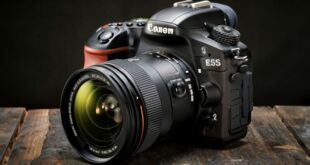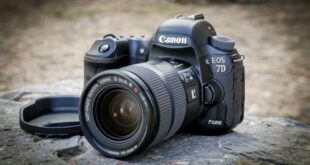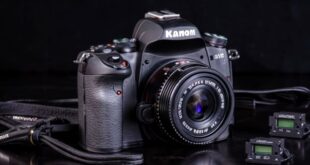The world of photography has undergone a massive transformation in recent years.
With advancements in mobile camera technology, smartphones are now equipped with high-resolution sensors, multiple lenses, and advanced editing capabilities. On the other hand, DSLR cameras still hold their ground as the go-to choice for professional photographers and enthusiasts.
In this article, we will delve deep into the realm of DSLR cameras and mobile camera technology, comparing their features, advantages, and disadvantages. Whether you are a budding photographer, a smartphone enthusiast, or simply a curious reader, this comprehensive analysis will help you understand the strengths and weaknesses of each option.
Introduction:
Photography has become an essential part of our lives, capturing precious moments, documenting milestones, and expressing individual creativity. With the rise of social media platforms, the demand for high-quality images has skyrocketed. This has led to a fierce competition between DSLR cameras and mobile cameras, both striving to provide the best photographic experience.
DSLR, short for Digital Single-Lens Reflex, has long been the gold standard for professional photography. These cameras offer a wide range of lenses, extensive manual controls, and exceptional image quality. Mobile cameras, on the other hand, have improved significantly over the years, providing convenience, portability, and instant sharing capabilities.
Let’s dive into the seven key factors that differentiate DSLR cameras from their mobile counterparts:
1. Image Quality 📷
The quality of images captured by DSLR cameras is unparalleled. With larger sensors, greater dynamic range, and the ability to shoot in RAW format, DSLRs produce images with incredible detail, color accuracy, and low noise levels. On the other hand, mobile cameras have smaller sensors, limiting their ability to capture the same level of detail and dynamic range. However, recent advancements in mobile camera technology have narrowed the gap in image quality, especially in well-lit conditions.
2. Manual Controls ✋
One of the biggest advantages of DSLR cameras is the extensive manual controls they offer. From adjusting shutter speed, aperture, and ISO to selecting different focus points and shooting modes, DSLRs provide photographers with complete control over their images. Mobile cameras, while offering some manual controls, are often limited in their functionality. However, for beginners or casual photographers, the ease of use and automatic settings of mobile cameras can be a blessing.
3. Lens Selection 📸
DSLR cameras boast a vast selection of interchangeable lenses, allowing photographers to capture a wide range of subjects with different focal lengths and perspectives. From wide-angle lenses for landscapes to telephoto lenses for wildlife photography, the versatility of DSLR lenses is unmatched. Mobile cameras, on the other hand, are limited to fixed lenses, with some phones incorporating a dual or triple camera setup for wider focal length options.
4. Low Light Performance 🌙
In challenging lighting conditions, DSLR cameras excel due to their larger sensors and advanced noise reduction capabilities. They produce cleaner, less grainy images even in low light situations. Mobile cameras struggle to match the low light performance of DSLRs, often resulting in noisy and less detailed images. However, manufacturers have introduced features like Night Mode to enhance the low light capabilities of mobile cameras, thereby bridging the gap to some extent.
5. Portability and Convenience 🚶♂️
One area where mobile cameras have a clear edge is portability. With smartphones being an essential part of our daily lives, having a high-quality camera in our pockets at all times has become incredibly convenient. DSLR cameras, with their bulky bodies and multiple lenses, can be cumbersome to carry around. Mobile cameras offer the flexibility of capturing spontaneous moments without the need for additional equipment.
6. Post-processing and Editing 🖌️
DSLR cameras produce images in RAW format, providing photographers with more flexibility for post-processing and editing. RAW files retain more information and allow for greater adjustments in exposure, white balance, and color grading. Mobile cameras typically capture images in compressed formats like JPEG, limiting the extent to which you can manipulate the image in post-processing. However, mobile phones now come equipped with powerful editing apps that offer a wide range of filters and adjustment options.
7. Affordability 💰
DSLR cameras, especially those aimed at professionals, can be quite expensive, with costs ranging from hundreds to thousands of dollars. On the other hand, mobile cameras are included in smartphones, which are already a necessity for most individuals. This makes mobile cameras a more affordable option for those looking to dip their toes into photography without breaking the bank.
DSL vs Mobile Camera Comparison:
| Features | DSLR | Mobile Camera |
|---|---|---|
| Image Quality | Exceptional | Improving |
| Manual Controls | Extensive | Limited |
| Lens Selection | Wide range | Fixed or limited |
| Low Light Performance | Superior | Improving |
| Portability and Convenience | Less portable | Highly portable |
| Post-processing and Editing | Extensive | Convenient |
| Affordability | Expensive | Affordable |
Frequently Asked Questions:
1. Are DSLR cameras better than mobile cameras for professional photography?
Despite the advancements in mobile camera technology, DSLR cameras still offer superior image quality, manual controls, and lens selection, making them the preferred choice for professional photographers.
2. Can mobile cameras replace DSLR cameras entirely?
While mobile cameras continue to improve, they are not yet capable of completely replacing DSLR cameras. DSLRs provide a level of versatility and quality that is unmatched by mobile cameras.
3. Are DSLR cameras too complicated for beginners?
DSLR cameras may have a steeper learning curve due to their extensive manual controls, but they also offer automatic shooting modes that make them accessible to beginners. Mobile cameras, on the other hand, are more user-friendly and require minimal setup.
4. Do mobile cameras offer professional features like DSLRs?
Mobile cameras are gradually incorporating professional features like manual controls, RAW capture, and advanced image processing algorithms. However, DSLR cameras still provide a wider range of professional features.
5. Can mobile camera photography be as creative as DSLR photography?
Mobile camera photography can be incredibly creative, thanks to the abundance of editing apps, filters, and unique shooting modes available. However, the larger sensors and interchangeable lenses of DSLR cameras offer more scope for creativity and experimentation.
6. Are DSLR cameras too bulky to carry around?
DSLR cameras can be bulky and require separate bags for carrying additional lenses and accessories. If portability is a major concern, mobile cameras offer a compact and convenient option.
7. Do mobile cameras have zoom capabilities like DSLR cameras?
Mobile cameras utilize digital zoom, which crops and enlarges the image, resulting in a loss of quality. DSLR cameras, on the other hand, offer optical zoom by changing the focal length of the lens, allowing for greater magnification without compromising image quality.
8. Can I print high-quality images captured with a mobile camera?
Mobile cameras with high-resolution sensors can capture images that are suitable for printing. However, due to the smaller sensor size, images captured with a DSLR camera often offer better print quality and sharpness.
9. Should I invest in a DSLR if I already have a mobile camera?
Investing in a DSLR camera is recommended if you are passionate about photography and want to explore the full potential of the art form. A DSLR will provide you with more versatility, control, and superior image quality.
10. Which type of camera is best for travel photography?
For travel photography, the convenience and portability of mobile cameras make them an ideal choice. However, if you seek exceptional image quality and the ability to capture a wide range of subjects, a DSLR camera will be a valuable companion.
11. Can I achieve professional-looking portraits with a mobile camera?
Mobile cameras can produce stunning portrait shots with their advanced portrait modes and post-processing capabilities. While DSLR cameras offer more control over depth of field and background blur, mobile cameras can still produce professional-looking portraits.
12. Which camera is better for capturing fast-moving subjects?
DSLR cameras excel in capturing fast-moving subjects due to their advanced autofocus systems and higher burst rates. Mobile cameras have also improved their autofocus capabilities, but they may struggle with subjects in rapid motion.
13. Are mobile cameras sufficient for casual photography?
Mobile cameras are more than sufficient for casual photography, capturing everyday moments with ease and convenience. Their automatic shooting modes and instant editing options make them perfect for capturing moments on the go.
Conclusion:
Both DSLR cameras and mobile cameras have their own set of advantages and disadvantages. DSLRs offer superior image quality, manual controls, and a vast array of lenses, making them a top choice for professional photographers. On the other hand, mobile cameras provide convenience, portability, and instant sharing capabilities, making them ideal for casual users and travel photography.
Ultimately, your choice between DSLR and mobile camera will depend on your photography needs, budget, and level of expertise. If you are a professional or an enthusiast seeking unparalleled image quality and control, a DSLR camera is the way to go. If you prioritize convenience, flexibility, and the ability to capture spontaneous moments, a mobile camera will serve you well.
No matter which option you choose, what truly matters is your passion for photography and the creativity you bring to the art form. So grab your camera, whether it’s a DSLR or a mobile, and start capturing moments that will last a lifetime!
Closing Statement:
In conclusion, the DSLR vs mobile camera debate is not easily settled. Both options have their merits and demerits. It’s important to consider your specific needs, preferences, and budget when deciding which camera is right for you.
Before making a purchase, research thoroughly, read reviews, and perhaps even test out different cameras to see which one feels most comfortable and suits your style of photography.
Remember, a great photograph is not solely determined by the camera you use. It’s a combination of vision, skill, and creativity. So, don’t let the gear limit your potential as a photographer.
Whether you choose a DSLR or a mobile camera, the most important thing is to go out and capture the world through your unique lens. So, go ahead, embrace your inner artist, and let your photographs tell a story!


